Recent Blog Posts
Substances Other Than Alcohol That Lead to DWI Arrests
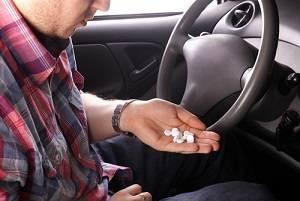 To many people, the assumption has always been that being pulled over for driving while intoxicated (DWI) was almost always the result of driving after drinking one-too-many alcoholic beverages. While that might be the most common reason for being charged and even convicted for DWI, the truth is that there are plenty of other legitimate reasons you might be pulled over for DWI and yet not have to deal with a breathalyzer or another blood alcohol concentration (BAC) level test, among other things. That is because the most critical element of a DWI arrest is proof of impairment, and impairment is not just caused by alcohol. Here are some other reasons you might be pulled over for DWI due to impairment.
To many people, the assumption has always been that being pulled over for driving while intoxicated (DWI) was almost always the result of driving after drinking one-too-many alcoholic beverages. While that might be the most common reason for being charged and even convicted for DWI, the truth is that there are plenty of other legitimate reasons you might be pulled over for DWI and yet not have to deal with a breathalyzer or another blood alcohol concentration (BAC) level test, among other things. That is because the most critical element of a DWI arrest is proof of impairment, and impairment is not just caused by alcohol. Here are some other reasons you might be pulled over for DWI due to impairment.
All the Ways You Might Be Impaired While Driving
A recent NHTSA report suggests that nearly 20 percent of all drivers might be impaired by any number of substances at any given time. For example, in addition to alcohol, you might experience some type of impairment if you are using any one or a mix of the following substances:
What Does “Failure to Stop and Render Aid” Mean in Texas?
 With regards to criminal law, a basic fact is that misdemeanors are not as serious as felonies. That is why a crime such as failure to stop and render aid (FSRA) can be considered a felony and has even been elevated to a more serious offense than it used to be within the last decade. If you were to review this charge by its wording alone, you might assume it is merely about being a good Samaritan. However, it is actually much more serious than that. Essentially, “failure to stop and render aid” means you did not follow the law in how you dealt with what seems to be a hit-and-run accident, be it one that involved people, damage to other cars, or damage to property. Here are further details about the definition of FSRA and its associated penalties when someone is injured or killed.
With regards to criminal law, a basic fact is that misdemeanors are not as serious as felonies. That is why a crime such as failure to stop and render aid (FSRA) can be considered a felony and has even been elevated to a more serious offense than it used to be within the last decade. If you were to review this charge by its wording alone, you might assume it is merely about being a good Samaritan. However, it is actually much more serious than that. Essentially, “failure to stop and render aid” means you did not follow the law in how you dealt with what seems to be a hit-and-run accident, be it one that involved people, damage to other cars, or damage to property. Here are further details about the definition of FSRA and its associated penalties when someone is injured or killed.
FSRA Defined
Regarding the most serious of the duties following an accident, the FSRA law, or those duties after a serious accident involving personal injury or death as noted in Sec. 550.021 of the Texas State Transportation Code, people must meet all of the following requirements if they are to be absolved of any FSRA allegations:
What Are the Differences Between Federal and State Drug Charges?
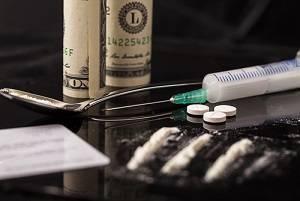 In Texas, for the most part, state drug charges signify severe penalties, more so than many other states. In some cases, the penalties can be steeper than those for federal drug charges. Since drug charges are common in criminal defense—and you never know when you or someone you care about might need to hire a criminal defense attorney to assist with such charges, it is worth knowing the differences between the state drug charges in Texas and federal drug charges. Essentially, there are three main differences between state drug charges and federal drug charges:
In Texas, for the most part, state drug charges signify severe penalties, more so than many other states. In some cases, the penalties can be steeper than those for federal drug charges. Since drug charges are common in criminal defense—and you never know when you or someone you care about might need to hire a criminal defense attorney to assist with such charges, it is worth knowing the differences between the state drug charges in Texas and federal drug charges. Essentially, there are three main differences between state drug charges and federal drug charges:
- Drug Classifications
- Methods of Prosecution
- Penalties/Punishments for Convictions
Drug Classifications and Their Associated Penalties
Texas law categorizes drugs differently than the federal government does. Inherent in both their classifications and definitions of drug types are the associated penalties and punishments. With regards to classifications, the federal government organizes drugs according to “schedule” types:
Motions to Revoke Probation Can Lead to Complex Situations in Texas
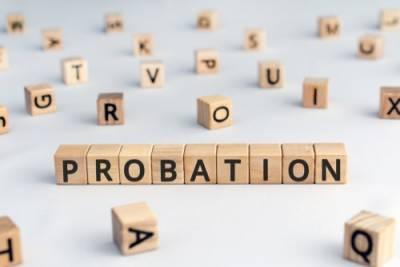 When you are on probation for a crime, especially with time already served, you will want to do anything to avoid any additional penalties or jail time. Despite this fact, no matter your most valiant efforts, you might end up finding yourself on the other end of a motion to revoke probation (MTR) issued by your probation officer. This is part of the reason why you must always be on such good behavior if on probation. Yet, if you deviate even to the slightest degree and do something illegal, you could be faced with an MTR.
When you are on probation for a crime, especially with time already served, you will want to do anything to avoid any additional penalties or jail time. Despite this fact, no matter your most valiant efforts, you might end up finding yourself on the other end of a motion to revoke probation (MTR) issued by your probation officer. This is part of the reason why you must always be on such good behavior if on probation. Yet, if you deviate even to the slightest degree and do something illegal, you could be faced with an MTR.
A Brief Overview of Motions to Revoke Probations in Texas
A motion to revoke probation will generally be filed when you commit any crime under the supervision of a probation officer. In general, the probation supervisor makes the decision to file this motion based on behavior the officers observe themselves or note from others, be it police or other witnesses to the crime(s). It is easy to forget that even though you are on probation and in the real world, you are still not entirely a free individual as your behavior seems like it is held to a higher standard than most average civilians, especially since your behaviors and actions are being documented by a probation supervisor often.
What You Need to Know About Intoxication Manslaughter in Texas
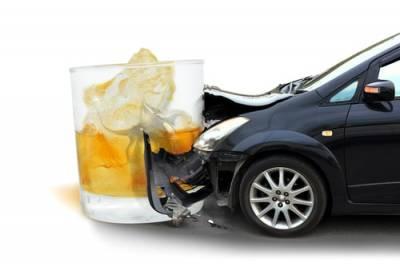 While DWI (driving while intoxicated) itself is a very serious offense, the most serious offense related to such a crime is intoxication manslaughter. This is no coincidence—the whole purpose of law enforcement serving and protecting other civilian drivers from those drivers who are intoxicated is to maintain their safety from serious injury or death. When an intoxicated driver kills someone by accident or mistake, the offense is referred to as intoxication manslaughter, and its penalties are very serious indeed.
While DWI (driving while intoxicated) itself is a very serious offense, the most serious offense related to such a crime is intoxication manslaughter. This is no coincidence—the whole purpose of law enforcement serving and protecting other civilian drivers from those drivers who are intoxicated is to maintain their safety from serious injury or death. When an intoxicated driver kills someone by accident or mistake, the offense is referred to as intoxication manslaughter, and its penalties are very serious indeed.
What Constitutes Intoxication Manslaughter in Texas?
In the state of Texas, the law defines “intoxication manslaughter” as follows:
“An individual is committing the offense of intoxication manslaughter if that person operates a motor vehicle in a public space, an aircraft, a watercraft, an amusement ride, or assembles an amusement ride while being intoxicated with a blood alcohol content (BAC) greater than or equal to .08% in which the aforementioned intoxication causes the death of another by mistake or accident.”
What Is a “Sobering Center” and How Can It Prevent DWI Charges in Texas?
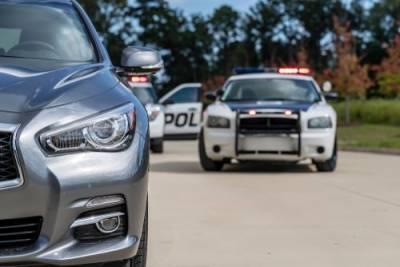 It is late. You are drunk and far away from home. You know driving at this stage of drunkenness would be illegal, but you also cannot afford the money necessary to get all the way back home from where you are. What are your options? Call a friend or family member? “Sleep it off” on a public bench and risk being arrested? Risk driving home anyway and then eventually getting charged with DWI (driving while intoxicated) or worse depending on what happens while you are driving drunk? There is another option all across Texas, including the “Sobering Unit” at Roberto L. Jimenez M.D. Restoration Center (“Drunk Tank” for “down-and-outs”) in San Antonio. These sobering centers offer a compelling alternative for both law enforcement and drunk civilians, including those contemplating driving home drunk. Here is why.
It is late. You are drunk and far away from home. You know driving at this stage of drunkenness would be illegal, but you also cannot afford the money necessary to get all the way back home from where you are. What are your options? Call a friend or family member? “Sleep it off” on a public bench and risk being arrested? Risk driving home anyway and then eventually getting charged with DWI (driving while intoxicated) or worse depending on what happens while you are driving drunk? There is another option all across Texas, including the “Sobering Unit” at Roberto L. Jimenez M.D. Restoration Center (“Drunk Tank” for “down-and-outs”) in San Antonio. These sobering centers offer a compelling alternative for both law enforcement and drunk civilians, including those contemplating driving home drunk. Here is why.
“Sobering Center” Defined
Sobering centers are seen as intermediaries between actual arrests with legal consequences for drunkenness that disrupts the peace and expensive hospital visits for excessive drinking. In short, these sobering centers are short-term recovery facilities where drunk or otherwise inebriated civilians can “sleep it off” and get a chance to regain their sobriety less the headaches of the morning after with the option to continue with recovery programs and other treatment options.
What Is the Science Behind Breath Tests and Are They Ever Wrong?
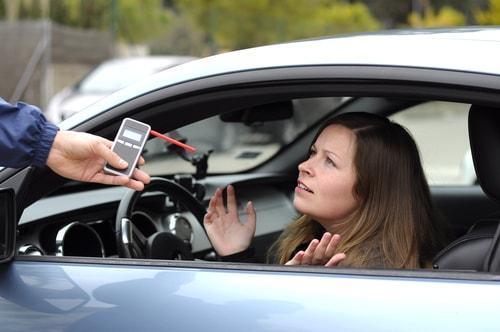 As the winter holidays approach, including potential New Year’s Eve festivities, even during the age of the COVID-19 pandemic, there is an increased likelihood of cases involving DWI (driving while intoxicated), DUI (driving under the influence), and even BWI (boating while intoxicated). As such, there is an equal increase in vigilance from law enforcement with regards to policing drunk driving. With that in mind, here is more information about one of the first things that will happen if you do get pulled over for a DWI this holiday: the breath test.
As the winter holidays approach, including potential New Year’s Eve festivities, even during the age of the COVID-19 pandemic, there is an increased likelihood of cases involving DWI (driving while intoxicated), DUI (driving under the influence), and even BWI (boating while intoxicated). As such, there is an equal increase in vigilance from law enforcement with regards to policing drunk driving. With that in mind, here is more information about one of the first things that will happen if you do get pulled over for a DWI this holiday: the breath test.
How Breath Can Be Tested for Alcohol
Alcohol moves through the alveoli of the lungs when it is consumed and evaporates into your breath. This “alveolar air,” when exhaled, provides substantial evidence to breathalyzer and other related breath tests of blood alcohol concentration (BAC). This allows officers to instantly know whether someone is drunk enough to be arrested instead of having to wait for the results of a blood or urine test.
What Constitutes Intoxication Assault Charges in Texas?
 DWI (driving while intoxicated), DUI (driving under the influence), and even BWI (boating while intoxicated) are all common charges throughout the San Antonio area. However, one charge is not discussed nearly as often and yet has very serious consequences, in and outside of the courtroom: intoxication assault. Here is how Texas law defines intoxication assault, including its associated terminology and penalties.
DWI (driving while intoxicated), DUI (driving under the influence), and even BWI (boating while intoxicated) are all common charges throughout the San Antonio area. However, one charge is not discussed nearly as often and yet has very serious consequences, in and outside of the courtroom: intoxication assault. Here is how Texas law defines intoxication assault, including its associated terminology and penalties.
Intoxication Assault Defined
Per Section 49.07 of the Texas Penal Code, a person commits intoxication assault if that person causes serious bodily injury to another:
- While operating an aircraft, watercraft, or amusement ride while intoxicated;
- While operating a vehicle in a public place while intoxicated; or
- As a result of assembling an amusement ride while intoxicated.
There are two key phrases in this definition of intoxication assault: "while intoxicated" and "serious bodily injury." In terms of operating motor vehicles or other modes of transportation while intoxicated, in Texas, an adult of the age of 21 or older cannot operate such a vehicle with a Blood Alcohol Concentration (BAC) of .08% or higher. When that happens, a charge of driving while intoxicated (DWI) is filed against the intoxicated driver; however, compound that with “serious bodily injury” of someone else, and there is intoxication assault.
Enhancements That Complicate and Compound DWI Charges in Texas
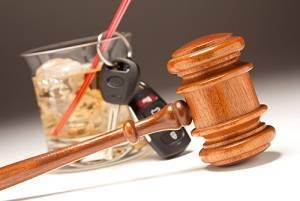 While being arrested and charged with DWI In Texas is bad enough, carrying with it the potential for severe penalties, including fines of up to $2,000, jail time of up to 180 days, and a license suspension if convicted for the first time alone, being charged with additional crimes at the same time certainly exacerbates your likelihood of a lighter sentence. These additional crimes, often referred to as “enhancements” when charged, will compound and complicate your DWI charges, leading to steeper penalties and punishments. Here is a profile of some common DWI enhancements.
While being arrested and charged with DWI In Texas is bad enough, carrying with it the potential for severe penalties, including fines of up to $2,000, jail time of up to 180 days, and a license suspension if convicted for the first time alone, being charged with additional crimes at the same time certainly exacerbates your likelihood of a lighter sentence. These additional crimes, often referred to as “enhancements” when charged, will compound and complicate your DWI charges, leading to steeper penalties and punishments. Here is a profile of some common DWI enhancements.
10 Common Enhancements That Might Accompany a DWI
There are myriad charges that can accompany a DWI if you are not careful. Here are some particularly common simultaneous enhancements that could compound your sentencing and make your case much more difficult to defend.
Such enhancements include:
Does “Implied Consent” Mean You Cannot Refuse to Take a BAC Test?
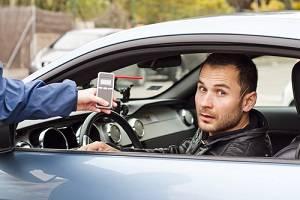 With periods of “No Refusal” for Blood Alcohol Content (BAC) testing being expanded across Texas, it is useful to know your rights when it comes to breath tests, blood tests, urine tests, and other sobriety tests. In particular, you must consider “implied consent” and how it can affect you if pulled over for driving while intoxicated (DWI) in Texas.
With periods of “No Refusal” for Blood Alcohol Content (BAC) testing being expanded across Texas, it is useful to know your rights when it comes to breath tests, blood tests, urine tests, and other sobriety tests. In particular, you must consider “implied consent” and how it can affect you if pulled over for driving while intoxicated (DWI) in Texas.
What Is Implied Consent?
While it might seem otherwise, driving throughout the United States is considered a privilege and not a right. This is why when you first get a driver’s license you are required to take tests. In taking and passing those tests and agreeing to the terms of your licensure, you are essentially waiving your rights to be reckless on the road. Most roads are public roads anyway, governed by the rules set forth by your local jurisdiction. To break those rules is to put other people’s safety at risk, which is against the law. By getting that driver’s license, you are giving your “implied consent” to have your blood or your breath tested for alcohol content, which can impair your driving abilities.





